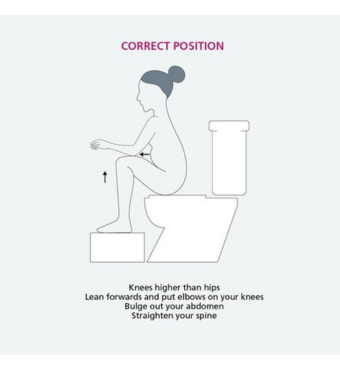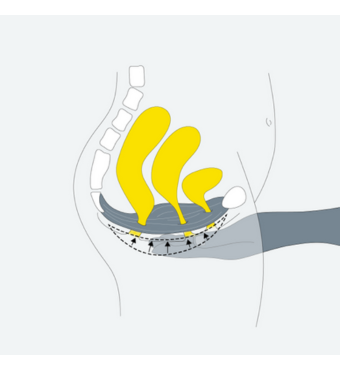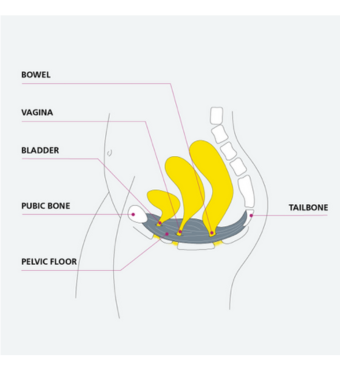Suspected lung cancer pathway
This page helps patients with symptoms that could mean they have lung cancer.
If you have been advised to read this information it does not mean you have lung cancer.
It means your symptoms need to be checked to see what’s causing them.
This page also has information about feelings, money help, and other support you can get.
Common symptoms
You might have felt or still feel these symptoms.
Do not ignore them, talk to your doctor or the hospital if you have:
- A chest infection that will not go away.
- Coughing up blood.
- A cough that is changing or bothering you for more than six weeks.
- Feeling more breathless than normal.
- Chest or shoulder pain.
- Voice changes, for example hoarseness, that lasts for more than three weeks.
- Trouble swallowing.
- Feeling unwell and tired.
- Losing weight without trying.
What the doctor will do
To check your symptoms, your doctor might do some of these things:
- Check you carefully.
- Arrange a chest X-ray or CT scan (these are pictures of inside your chest).
- Talk to you about the results of the chest X-ray or CT scan or send you to the hospital.
If more tests are needed, your doctor will help you see a chest specialist at the hospital. Usually, you will get an appointment within two weeks.
Going to the hospital: what you need to know
You are going to see a lung doctor at the hospital because you have some symptoms that might mean you have lung cancer. There could be other reasons for your symptoms too.
The doctor will do some tests to find out what is causing your symptoms and see if you have lung cancer.
If you do have lung cancer, it's important to know how far it has spread. This means finding out if it's just in the lung or if it has moved to other parts of the body.
The Lung Cancer Nurse Specialist Team (LCNS)
The Lung Cancer Nurse Specialists are trained to help people with cancer. We are part of the Cancer Support Team. We can answer your questions and give information about your diagnosis, treatment, and support during and after your care.
We will offer the following support to you and your family:
- Help during face-to-face appointments.
- Giving you special information about treatments.
- Helping you over the phone.
- Telling you about other places you can get help.
- Giving emotional support (help with feelings).
Cancer Support Worker (CSW)
The Cancer Support Team also have Cancer Support Workers. They are trained to provide support and information about your body, your feelings, and practical concerns to help you self-manage your recovery and help you return to a healthy a lifestyle as quick as possible.
Tests at your first hospital appointment
At your first appointment, your hospital doctor might want to do some tests to help them understand what’s happening in your body.
Physical examination
Your doctor may check your body and listen to your breathing.
Blood tests
You may be asked to have some simple blood tests.
Chest X-ray
This test involves getting a picture of your chest to see if anything looks unusual. If you haven’t had a chest X ray you will need one. If you have, it may need to be repeated.
Breathing tests
You will be asked to blow into a machine that measures how well you can breathe. This test can take one hour and is done at Southmead Hospital.
Bronchoscopy
This test lets your doctor see inside your breathing tubes using a camera. They may take a tiny sample. It is done as an outpatient and usually involves attending the hospital for a morning or afternoon. This is done at Southmead Hospital.
It is important you have someone to stay with you overnight because of the sedation you may be given during the bronchoscopy. If you do not have anyone that is able to do this, please talk about this with your lung cancer nurse specialist who can look at other options.
EBUS (Endobronchial Ultrasound)
This test that allows the doctor to look into your lungs (similar to a bronchoscopy) but uses ultrasound to look deeper into your chest. The doctor can take samples from the glands in the middle of your chest. It usually takes one day to do and you can go home the same day, but you will need someone to stay with you overnight.
PET-CT scan
This scan is done in most patients who are considered for surgery or radical radiotherapy. This scan takes about two to three hours. This scan is done at Southmead Hospital.
CT guided biopsy
This is a test that allows radiologists to take samples of abnormal areas seen on the CT scan. This helps them understand what those areas are.
It is essential you have someone to stay with you overnight who can care for you if you feel unwell or experience any problems after the biopsy. Please talk to your lung clinical nurse specialist if you need help.
Please be aware that you cannot fly for 6 weeks after having a CT guided biopsy.
Bone scan
This is a special type of X-ray scan that checks for any problems in your bones.
USS (Ultrasound) guided biopsy
The X-ray doctor may take a small sample of one of your glands or your lung. They use an ultrasound scan to help and they will use local anaesthetic so you don’t feel anything. You are fully awake at the time.
If you have swollen lymph glands in your neck or fluid in your chest, we may want to take a sample with a syringe and needle. This is a simple test that can be done in the clinic and can help the doctors get answers faster.
Pleural tap
Sometimes there is fluid around the lung, which we may remove for comfort to help you breathe better or help the doctors find out what’s wrong. This is usually done in the pleural clinic in the lung (respiratory) department at Southmead Hospital.
MRI or ultrasound scan
In some patients these tests are also needed. This may be as well as the CT scan, or instead of, these scans. They will take place in the X-ray department, Southmead Hospital.
Mediastinoscopy
This is a small operation carried out by the chest surgeon. They can look at the area in the middle of the chest (called the mediastinum) and take samples (biopsies) if needed. This is usually done in one day, but you will need someone to stay with you overnight at home.
Multidisciplinary team meeting
When the results of you test are ready, the hospital doctors will talk about your case at a weekly multidisciplinary team meeting (MDT).
At the meeting, the lung cancer team will discuss your symptoms and test results, and decide what treatment is best for you.
The team includes lung doctors (respiratory physicians), cancer treatment doctors (oncologists), chest surgeons, X-ray specialists (radiologists), the lung cancer nurse specialists and other people who care for patients like you.
The meeting takes place on a Wednesday and someone from the team may contact you after the meeting (but not routinely) if they need to talk about any future tests or appointments.
Your next hospital appointment
At this appointment, your doctor or lung cancer nurse specialist will tell you the result of your tests. This may be over the phone or face-to-face. They will usually be able to tell you if you have a lung cancer or not, and what is the best treatment for you if you do have lung cancer. Please note that sometimes, extra tests may need to be done to be completely sure.
If you do have lung cancer, they will tell you what type of lung cancer it is (because different types need different treatments). And whether the cancer is only in your lung or has spread to other parts of your chest or body.
They will then explain to you the treatment plan that the team decided on during the MDT meeting. This will usually mean that you need to see another doctor, like a surgeon or cancer treatment doctor.
Personalised Care and Support Planning (PCSP)
Personalised Care and Support Planning is a talk and check-up and assessment you will have with your Clinical Nurse Specialist or Cancer Support Worker. This is to help talk about your health and feelings about your cancer. It helps them understand what’s most important to you and what help you might need.
Making decisions about your healthcare
At North Bristol Trust we want you to be part of your choices about your care. When you and your doctors make decisions together about your health care plan and treatment, this is called shared decision making. This makes sure that you are supported to make decisions that are right and best for you. This means supporting you to choose tests and treatments based on what the doctors have found out, as well as your individual preferences, beliefs, and values.
It can be helpful to write down questions you have for your healthcare team. You should bring these, and a pen and paper to make any notes when you have appointments.
Some questions that are good to ask:
- What are my options?
- What good and bad things could happen with those options?
- What support and information can I get to help make my decisions?
Shared decision-making matters to us. Tell us what matters to you. Your feelings and choices are important.
About the three main treatments for lung cancer
Doctors use different treatments for lung cancer, depending on what is best for each person. These are the three main ones:
Surgery
Some tumours (cancer) are best treated by an operation to remove them. Your doctor will only suggest surgery if they think it could cure the cancer. Unfortunately, some people with lung cancer are not well enough for surgery, or the cancer might be in a place where it cannot be removed.
If surgery is possible, the doctor might have to remove part of the lung or the whole lung. Even after removal of a whole lung, patients can have a good quality of life and are still able to do many of the activities that they did before the surgery. However, you may get out of breath more easily.
Radiotherapy
This is a type of treatment that uses X-rays to target and kill the cancer. It is the most used treatment for lung cancer. The number of treatments depends on your case, and your oncologists (cancer treatment doctors) will talk about this with you.
You should be offered the opportunity to meet the lung specialist radiographer (X-ray expert), who will give you information and support you when having radiotherapy to your chest.
Chemotherapy
This is a type of medicine that can kill cancer cells. It is given through a drip (intravenous (IV) infusion) or as tablets. There There are many different types and combinations of chemotherapy. Your oncologist will help you choose which ones are best for you. Chemotherapy is a systemic treatment. This means it travels all around the body, and if the cancer cells are sensitive to it, it kills them wherever they are.
There are other treatments like immunotherapy and anti-cancer tablets, but they don’t work for every kind of lung cancer. Your lung cancer nurse will be happy to answer any questions and help you understand your treatment.
Follow-up care
After your treatment is finished, you will be seen regularly by your treatment team. They will check how well the treatment has worked and make sure you feel okay. You will be supported by your GP (local doctor) and other members of the community team. You can also contact the lung cancer nurses at any time, even if you are not seeing them regularly.
Contacts
If you need help or have an urgent question, you can contact the Lung Cancer Nurses:
- Phone number: 0117 414 1900
- 09:00 - 17:00, Monday - Friday
- Email: LungCancerCNS@nbt.nhs.uk
They are not always at their desk, but you can leave your name, phone number, and a short message. They will call you back as soon as they can.
For questions about your appointments, call medical oncology on 0117 414 6385
Services and help you can use
Money and benefits advice - Citizens Advice Bureau
If you or your family are struggling to cope with the money impact of cancer, there is help available. The Macmillan benefits service at Bristol Citizens Advice Bureau can give you free and private advice on what money support (benefits) you might be able to get. Ask your lung cancer nurse if you would like help getting in touch with them. There may be money grants (extra money) that can be applied for, so please ask your team for help with this.
Blue Badge Scheme
If your illness makes it hard for you to walk far, you might be able to get a Blue Badge. This lets you park closer to shops or hospitals. Ask your lung cancer nurse or your local council for a form to apply.
Free prescriptions
If you’re getting treatment for cancer, you can get your prescriptions (medicines) for free. Ask you GP or lung cancer nurse for a free prescription certificate.
Other benefits
If you are told you have lung cancer, you might get extra support form the government. One common benefit is called Attendance Allowance. If you would like help with this, ask your lung cancer nurse will get your cancer support worker to help guide you.
Extra support
NGS Macmillan Wellbeing Centre
This centre gives support to people with cancer. They offer help and information about different kinds of cancers and treatments. They also talk about money, benefits you might get, what to eat and exercises to do. If you have concerns or just want to talk with one of the team, they have time to listen and help you.
The centre offers ‘drop-ins’ for coffee or tea, and a chat or appointments for your needs.
- Opening times: Monday - Friday 08:30 - 16:15
- Phone number: 0117 414 7051
Cancer Information Session
You might be invited to a group session if you have recently been diagnosed with cancer. This session includes education and support about cancer treatment. You’ll also get to meet other people going though similar things. They will also offer you tips to help you make choices about your care.
Venue: NGS Macmillan Wellbeing Centre, Southmead Hospital
Days and times: Monday 13:30 - 14:30, Thursday 10:00 - 11:00
Useful links
Mesothelioma UK
Mesothelioma UK is a national specialist resource centre, specifically for the asbestos-related cancer, mesothelioma. The charity is dedicated to providing specialist mesothelioma information, support and education and to improving care and treatment for all UK mesothelioma patients and their careers.
- Website: Mesothelioma UK | Supporting people with this asbestos cancer
- Email: info@mesothelioma.uk.com
- Phone: 0800 1692 409, Monday - Friday 08:30 - 16:30
The Penny Brohn Cancer Care Centre UK
Provides complementary support for people with cancer and their families. Among other things they run residential and single day courses and provide nutritional information, massage, creative therapies and support groups.
- Website:Penny Brohn UK – Cancer wellbeing for everyone
- Confidential helpline: 0303 3000 118 Monday - Friday, 09:30 - 17:00
Carers UK advice line
Open Monday - Friday, 10:00 - 16:00
Note: listening service available Mondays and Tuesdays from 10:00 - 16:00
- Phone: 0808 808 7777
- Website: Help and advice | Carers UK
Samaritans
Whatever you’re going through, a Samaritan will face it with you. were here 24 hours a day 365 days a year.
Roy Castle Lung Cancer Foundation
We provide information and support to lung cancer patients. Please call our helpline on 0800 358 7200 if you have any questions about lung cancer. Open Monday - Friday 09:00 - 17:00.
© North Bristol NHS Trust. This edition published October 2025. Review due October 2028. NBT003824
Support your local hospital charity

See the impact we make across our hospitals and how you can be a part of it.








